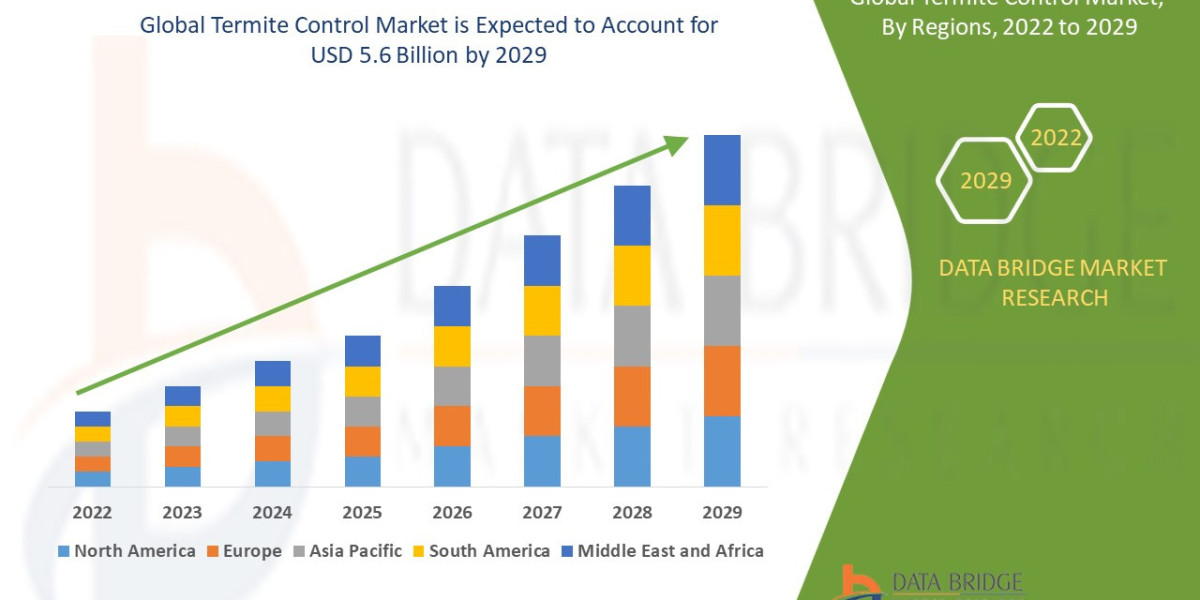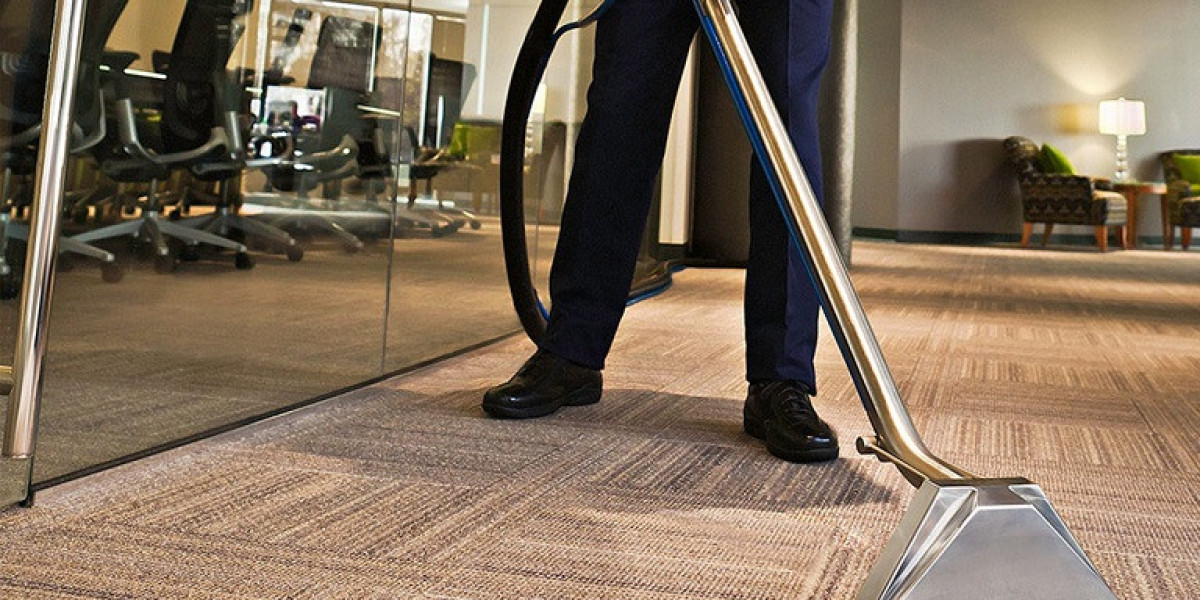Executive Summary Termite Control Market
The termite control market is expected to witness market growth at a rate of 3.5% in the forecast period of 2022 to 2029 and is expected to reach USD 5.6 billion by 2029.
The market data analysed and evaluated in this Termite Control Market report makes you achieve the business goals and objectives in preset time frame. This industry report underlines the specific study of the industry which explains what the market definition, classifications, applications, engagements, and global industry trends are. It highlights a wide-ranging evaluation of the market’s growth prospects and restrictions. This report is very useful to all sizes of business which makes it simpler to take informed decisions regarding different facets of industry. Termite Control Market report truly acts as a backbone to the business.
A skilful set of analysts, statisticians, research experts, forecasters, and economists work carefully to build this Termite Control Market research report for the businesses seeking a prospective growth. The report has market parameters that mainly include latest trends, market segmentation, new market opening, industry forecasting, target market analysis, future directions, opportunity identification, strategic analysis, insights and innovation. This market research report gives knowledge about strategic analysis of mergers, expansions, acquisitions, partnerships, and investment. Termite Control Market research analysis lends a hand to businesses for the planning of production, product launches, costing, inventory, purchasing and marketing strategies.
Discover the latest trends, growth opportunities, and strategic insights in our comprehensive Termite Control Market report. Download Full Report: https://www.databridgemarketresearch.com/reports/global-termite-control-market
Termite Control Market Overview
**Segments**
- Based on control method, the global termite control market can be segmented into physical & mechanical methods, chemical methods, and biological methods. Physical & mechanical methods include the use of barriers, traps, and heat to control termite populations. Chemical methods involve the use of termiticides and other chemical solutions to eradicate termites. Biological methods utilize natural predators and pathogens to manage termite infestations.
- In terms of application, the market can be divided into commercial, residential, and agriculture & livestock. The commercial segment includes applications in industries, offices, and public spaces. The residential segment covers termite control solutions for homes and other living spaces. Agriculture & livestock applications deal with protecting crops and animals from termite damage.
- On the basis of species, the market can be categorized into subterranean termites, drywood termites, dampwood termites, and others. Each species requires specific control methods due to their varying behaviors and habitats.
- Geographically, the market is segmented into North America, Europe, Asia-Pacific, South America, and Middle East & Africa. Each region has its own set of challenges and opportunities in the termite control market, influenced by factors such as climate, regulations, and prevalence of termite species.
**Market Players**
- Some key players in the global termite control market include Rollins Inc., Rentokil Initial plc, ServiceMaster Global Holdings, Inc., Terminix, Arrow Exterminators, Inc., BASF SE, Bayer AG, Syngenta, Sumitomo Chemical Co., Ltd., and Corteva Agriscience. These companies are involved in research and development activities to introduce innovative termite control solutions.
- Other significant market players are Ecolab, Anticimex, Bell Laboratories, Ensystex, FMC Corporation, Spectrum Brands, Inc., and ADAMA Agricultural Solutions. These players have a strong presence in the market and offer a wide range of products and services to effectively combat termite infestations.
The global termite control market is witnessing a significant shift towards more sustainable and environmentally friendly solutions to address termite infestations. With increasing awareness about the harmful effects of traditional chemical treatments on the environment and human health, there is a growing demand for biological and organic methods of termite control. Companies in the market are investing heavily in research and development to develop innovative products based on natural predators, pathogens, and plant extracts that are effective in managing termite populations without posing risks to non-target organisms.
Furthermore, advancements in technology are playing a crucial role in shaping the future of the termite control market. Integrated pest management systems, IoT-based monitoring devices, remote sensing technologies, and automated treatment applications are revolutionizing the way termite infestations are detected, monitored, and controlled. These technological innovations not only enhance the efficiency and accuracy of termite control measures but also provide real-time data and insights to stakeholders for better decision-making and resource allocation.
Moreover, the market is witnessing a growing trend towards integrated pest management (IPM) strategies that focus on preventive measures, monitoring, and targeted treatments to ensure long-term termite control solutions. IPM combines various control methods such as physical barriers, habitat modification, biological controls, and minimal pesticide usage to create a sustainable and holistic approach to termite management. This approach not only reduces the reliance on chemical treatments but also promotes ecosystem health and biodiversity by preserving natural predators and beneficial organisms in the environment.
Additionally, the increasing prevalence of invasive termite species in new geographical regions due to factors like climate change, urbanization, and global trade is driving the need for collaborative efforts between government agencies, research institutions, and industry players to develop effective control strategies. International cooperation and information sharing are becoming critical in addressing the challenges posed by exotic termite species and preventing their spread to new territories.
Overall, the global termite control market is witnessing a paradigm shift towards sustainable, technology-driven, and integrated approaches to combat termite infestations. With a strong focus on innovation, collaboration, and environmental responsibility, market players are poised to meet the evolving needs of customers and regulatory requirements while ensuring the long-term health and sustainability of ecosystems.The global termite control market is experiencing a notable transformation driven by the increasing shift towards sustainable and environmentally friendly solutions. As awareness about the negative impacts of traditional chemical treatments rises, demand for biological and organic methods of termite control is growing. Market players are actively investing in R&D to develop innovative products utilizing natural predators, pathogens, and plant extracts, offering effective termite management solutions without harmful effects on the environment or human health. This shift towards sustainable practices not only aligns with consumer preferences but also complies with stringent regulatory requirements regarding pesticide use.
Technological advancements are also revolutionizing the termite control market, with the adoption of integrated pest management systems, IoT-based monitoring devices, and automated treatment applications enhancing efficiency and accuracy in termite detection and control processes. These technological innovations provide real-time data and insights to stakeholders, enabling better decision-making and resource allocation, thus improving overall operational effectiveness and customer satisfaction.
The trend towards integrated pest management (IPM) strategies signifies a holistic approach to termite management, emphasizing preventive measures, monitoring, and targeted treatments to ensure long-term efficacy. By combining various control methods and minimizing pesticide usage, IPM not only reduces environmental impacts but also promotes ecosystem health and biodiversity by preserving natural predators and beneficial organisms in the environment. This approach is gaining traction as a sustainable solution to termite infestations, catering to the increasing emphasis on eco-friendly practices and regulatory compliance.
Furthermore, the rise in invasive termite species in new regions due to climate change, urbanization, and global trade is driving collaborative efforts among stakeholders to develop effective control strategies. The need for international cooperation and information sharing to address challenges posed by exotic termite species highlights the importance of cross-sector partnerships and coordinated action plans to prevent their spread and mitigate potential economic and environmental damages. By fostering collaboration and knowledge exchange, industry players can stay ahead of emerging threats and enhance preparedness to combat future termite infestations effectively.
In conclusion, the global termite control market's evolution towards sustainable, technology-driven, and integrated approaches reflects a proactive response to changing market dynamics and regulatory landscapes. By prioritizing innovation, collaboration, and environmental responsibility, market players are not only meeting customer demands but also ensuring ecosystem health and sustainability for future generations.
The Termite Control Market is highly fragmented, featuring intense competition among both global and regional players striving for market share. To explore how global trends are shaping the future of the top 10 companies in the keyword market.
Learn More Now: https://www.databridgemarketresearch.com/reports/global-termite-control-market/companies
DBMR Nucleus: Powering Insights, Strategy & Growth
DBMR Nucleus is a dynamic, AI-powered business intelligence platform designed to revolutionize the way organizations access and interpret market data. Developed by Data Bridge Market Research, Nucleus integrates cutting-edge analytics with intuitive dashboards to deliver real-time insights across industries. From tracking market trends and competitive landscapes to uncovering growth opportunities, the platform enables strategic decision-making backed by data-driven evidence. Whether you're a startup or an enterprise, DBMR Nucleus equips you with the tools to stay ahead of the curve and fuel long-term success.
Key Influence of this Termite Control Market:
- Comprehensive assessment of all opportunities and risk in this Termite Control Market
- This Termite Control Marketrecent innovations and major events
- Detailed study of business strategies for growth of the this Termite Control Market leading players
- Conclusive study about the growth plot of the Market for forthcoming years
- In-depth understanding of this Termite Control Market particular drivers, constraints and major micro markets
- Favorable impression inside vital technological and market latest trends striking this Termite Control Market
- To provide historical and forecast revenue of the Termite Control Marketsegments and sub-segments with respect to four main geographies and their countries- North America, Europe, Asia, and Rest of the World (ROW)
- To provide country level analysis of the Termite Control Market t with respect to the current market size and future prospective
Browse More Reports:
Global Digital Holographic Display Market
Global Animal Feed Acidifier Market
Global Polyvinyl Butyral Market
Global Lyme Disease Drug Market
Asia-Pacific Reverse Logistics Market
Middle East and Africa Remote Patient Monitoring and Care Market
Global Hepatitis C Diagnosis and Treatment Market
Global Sleep Tech Devices Market
Global Paperboard Beverage Packaging Market
Global Single-use Bioprocessing Systems Market
Global Nanobots Market
Global Oxidative Stress Assay Instruments Market
About Data Bridge Market Research:
An absolute way to forecast what the future holds is to comprehend the trend today!
Data Bridge Market Research set forth itself as an unconventional and neoteric market research and consulting firm with an unparalleled level of resilience and integrated approaches. We are determined to unearth the best market opportunities and foster efficient information for your business to thrive in the market. Data Bridge endeavors to provide appropriate solutions to the complex business challenges and initiates an effortless decision-making process. Data Bridge is an aftermath of sheer wisdom and experience which was formulated and framed in the year 2015 in Pune.
Contact Us:
Data Bridge Market Research
US: +1 614 591 3140
UK: +44 845 154 9652
APAC : +653 1251 975
Email:- corporatesales@databridgemarketresearch.com"
Termite Control, Termite Control Trends, Termite Control Growth, Termite Control Demand, Termite Control Size, Termite Control Scope, Termite Control Insights, Termite Control Analysis








